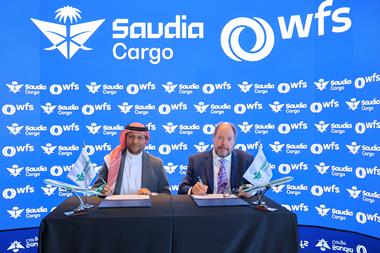Air cargo operations have been tough in the Canadian market, though there are still ample opportunities for charter flights.
The Canadian air cargo market is still waiting for its revolution. WestJet, which had promised to disrupt the frozen landscape, abandoned its quest to do so before this correspondent could figure out how an operation with four Boeing 737 freighters was going to bring about a tectonic shift in a market where express and e-commerce flows have coalesced around Cargojet, the dominant freighter operator on the scene, while Air Canada dominates international flows with a large international passenger network supplemented with freighters.
By August WestJet Cargo had turned away from the scheduled network operation it had built and put two of the four freighters in storage. The other two have pivoted to charter work plus ad hoc flights on specific routes and partnerships.
Brittle supply chains, disruptions from weather events and labour relations, and shifts in production on a wave of nearshoring have produced ample opportunities for charter work, but this is hardly the revolution that the WestJet Cargo team had envisaged when it launched its freighter operation. These days the airline has been adding 737 MAX aircraft to its passenger fleet.
Air Canada is unlikely to crow over the developments in WestJet’s cargo operation. In May the carrier pulled the plug on plans to convert two more Boeing 767-300s into all-cargo configuration, which would have expanded its freighter fleet to ten 767s.
Management stated that the move was “to adjust the freighter fleet to market conditions”, following a 9% year-on-year drop in cargo revenues. A surge in bellyhold capacity in the transatlantic market has taken a toll on yields that Air Canada’s other markets could not compensate for.
Cargo had been flying high during the pandemic, spawning lofty ambitions, but those have since shrunk. Last September, Air Canada dropped plans to add a couple of Boeing 777 freighters to its fleet, choosing to boost an order for 777 passenger planes instead.
The presentation of its second-quarter results revealed further shrinkage in the freighter line-up. Back in April, Air Canada sidelined two 767 freighters in response to market conditions, reducing its active freighter fleet to six units. According to sources speaking on condition of anonymity, those six planes are running an operation that requires four.
In a stark contrast, Cargojet is adding three 767 freighters to its fleet of 41, which are fully utilised, according to management. Working hard to steer a steady course seems to be working better than heady expansion plans.










